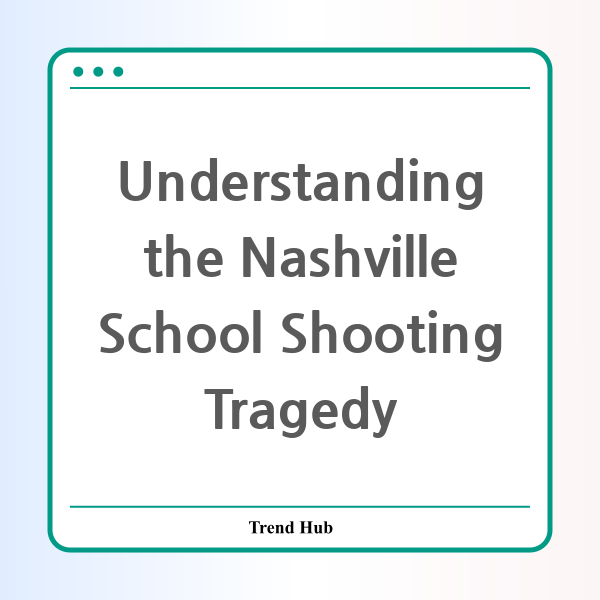* This website participates in the Amazon Affiliate Program and earns from qualifying purchases.

In the wake of the tragic school shooting at The Covenant School in Nashville, the revelations about the shooter, Audrey Hale, have left many perplexed and deeply saddened. Why would someone who once cherished their time at school turn to such violence? This is a question that haunts not only the community but also the nation as we seek to understand the motives behind mass shootings.
On March 27, 2023, Hale, a former student, unleashed a horrific attack that resulted in the deaths of six innocent individuals, including three 9-year-old children. The motives behind her actions were explored in a detailed report released two years later, shedding light on the complex psyche of a person driven by a quest for notoriety rather than personal vendetta.
According to investigators, Hale had no personal grievances against her victims or the school. In fact, she held positive memories from her time there, feeling safe and accepted. However, over a decade after her departure, Hale’s motivations evolved, revealing a disturbing desire for fame and recognition through infamy. The police report stated that Hale believed her actions would earn her a lasting legacy, akin to notorious figures who came before her, such as those involved in the Columbine High School shooting.
Hale meticulously planned her attack, leaving behind detailed writings that included timelines and diagrams. This indicated a premeditated approach to the crime—one that was motivated by a desire to document her struggles and possibly lead others down a similar path. The chilling fact that she transferred these writings onto a thumb drive, intending them to be found, speaks volumes about her intentions.
In her writings, Hale expressed admiration for other mass shooters, rating them based on their body counts and considering those with fewer victims as "amateurs." Her aspirations were gruesome yet clear: she wanted documentaries made about her life and her actions and sought to have her firearms displayed in a museum. This quest for notoriety raises questions about the societal influences that glorify such violence and the mental health issues that often remain unaddressed.
Despite receiving mental health care support from her parents, Hale exhibited behaviors and thoughts that indicated a struggle with mental illness, including anxiety and social phobia, which likely contributed to her isolation and feelings of abandonment. Her case emphasizes the importance of recognizing and addressing mental health issues before they escalate into acts of violence.
The impact of the shooting is immeasurable, with families of the victims publicly stating there could never be closure from this traumatic event. The loss of Evelyn Dieckhaus, Hallie Scruggs, William Kinney, Mike Hill, Katherine Koonce, and Cynthia Peak is felt deeply within the Nashville community, accentuated by the senselessness of the crime.
As we reflect on this tragedy, it becomes essential to engage in dialogues about mental health, the influence of societal narratives on violence, and the responsibilities we hold as a community in preventing such horrific acts in the future. Understanding the motivations behind such violence may not bring back lost lives, but it can help us work towards a safer, more compassionate society.
* This website participates in the Amazon Affiliate Program and earns from qualifying purchases.